Quote of the day: “Most of us do not take these situations as teachings. We automatically hate them. We run like crazy. We use all kinds of ways to escape — all addictions stem from this moment when we meet our edge and we just can’t stand it. We feel we have to soften it, pad it with something, and we become addicted to whatever it is that seems to ease the pain.”
― Pema Chödrön, When Things Fall Apart: Heartfelt Advice for Hard Times
This morning I awoke to this view of the deck outside our dining room.
Life happens while you’re making other plans…
My beloved basswood tree split and half of it fell on our deck and storage shed during the severe thunderstorm and high winds last night.
Although I woke up during the storm, and heard the crash of the big tree during the night, I didn’t get up to look. My husband was up so I figured he would come and tell me if there was any serious damage. I was hoping that it was just a branch and that the damage would not be significant.
When I woke up this morning, I immediately went to the bedroom window to look out. “Not so bad,” I thought, because the damage wasn’t visible from there.
And then I walked out to the living room and looked towards the dining room and gasped.
While I was counting my blessings that the house itself wasn’t damaged and we still had electricity, another part of me was stressing out about the damage, the hassle and cost of repairing it, and feeling sadness as the loss of a wonderful old tree that I love.
Even though I decided not to go back to work as a software engineer, part of my brain was also assessing whether I should think about trying to find a software engineering contract to help pay for this unexpected expense.
I found myself wanting to jump into action and getting frustrated and angry with Jon because he wasn’t jumping into action as quickly as I thought he should.
Then I started noticing my reactions, the tenseness in my voice and body, and an overwhelming desire to escape, to do something, anything to distance myself from the feelings I was experiencing.
I noticed, before jumping into action.
That’s a big deal for me, noticing rather than blindly escaping.
I thought, “Oh yes, I’m familiar with this wanting to do something, anything to escape. How about I try staying present and open instead of escaping?”
So I decided to go sit and meditate. I remembered when I fell in Hawaii and Akiko had me sit and focus on my breath even before getting up off the ground (see Amazing Grace).
I sat. Gracie, my cat jumped into my lap and began purring, and I breathed in and out, counting my breaths. I noticed tears, and a tight angry feeling in my gut, sadness, and fear.
Breathe in, breathe out. Thoughts come, thoughts go. Feelings arise and then within a minute or two dissipate, like waves. I am surprised when I notice the wave-like quality of my emotions. Even though I’ve read about their short duration before, I never paid this kind of careful attention to them.
Neuroanatomist, Jill Bolte Taylor, who suffered a massive stroke and wrote about her experience after she recovered, says that emotions last no longer than 90 seconds if they are allowed to freely flow and are recognized. She says, “Just like children, emotions heal when they are heard and validated.”
A willingness to feel, to let your heart open, to be vulnerable—is paradoxically the way to freedom from stuck emotions.
Sometimes things fall apart. Painful events and losses happen. And through it all, life goes on.
The back yard is still a mess. When I look out the window I feel sad when I see the downed branches and damaged tree. My back yard sanctuary is changing.
And I still count my blessings of having a home and beauty that surrounds me, having enough to eat, modern conveniences, friends, family. My losses were small today. This practice helps me prepare for other inevitable losses and changes that occur for us all during life.
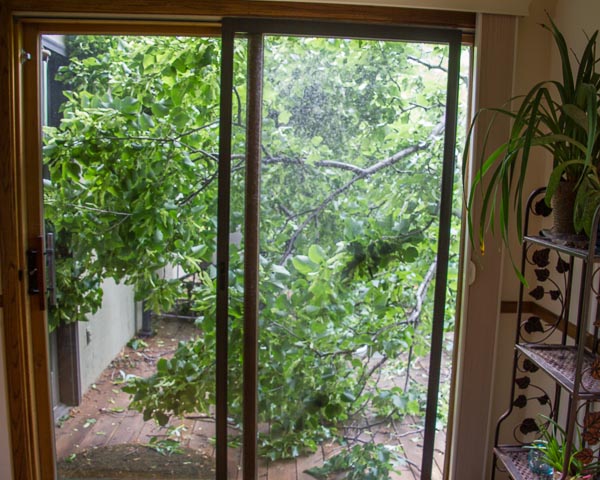
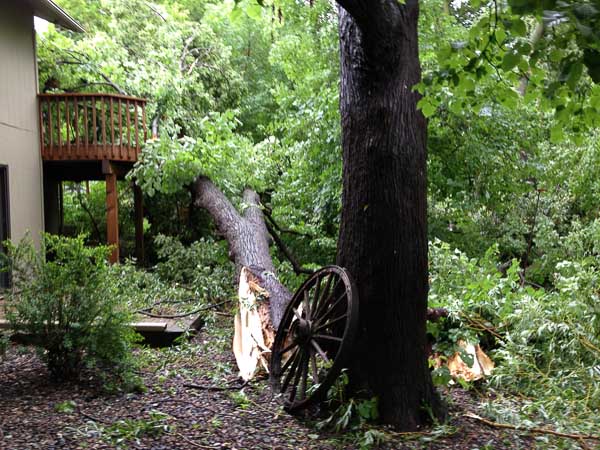
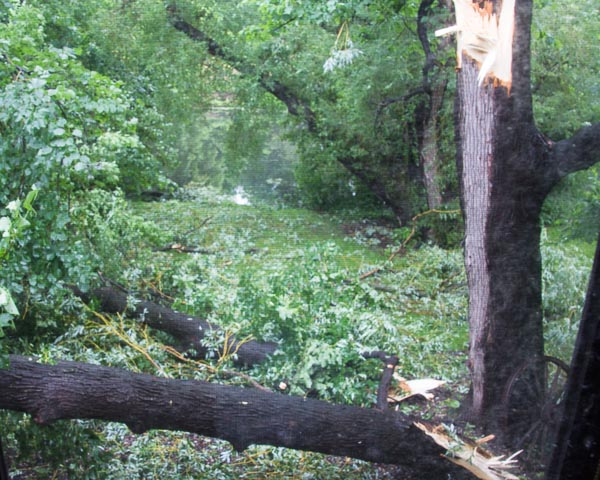
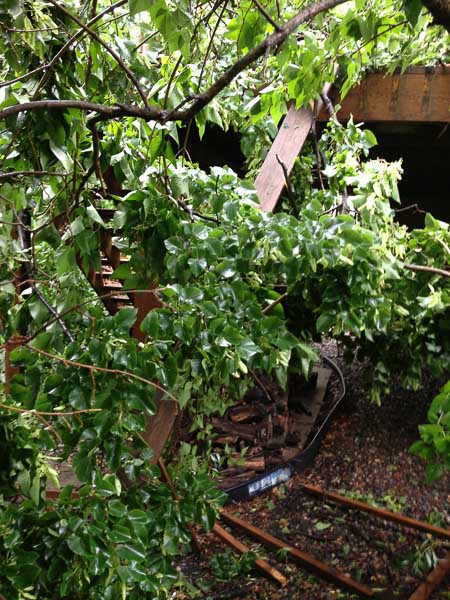
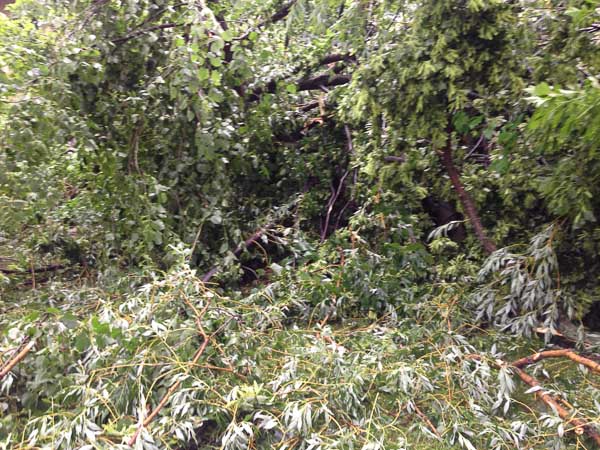
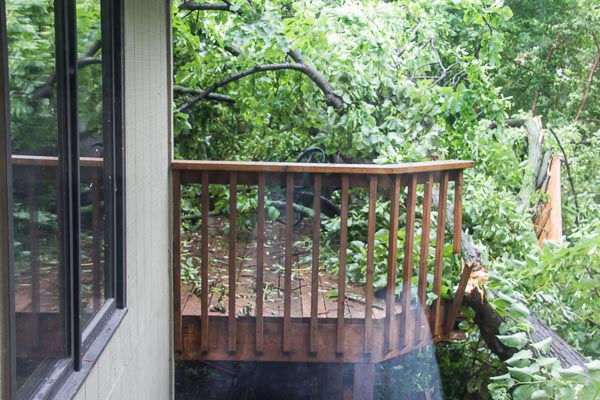



0 Comments